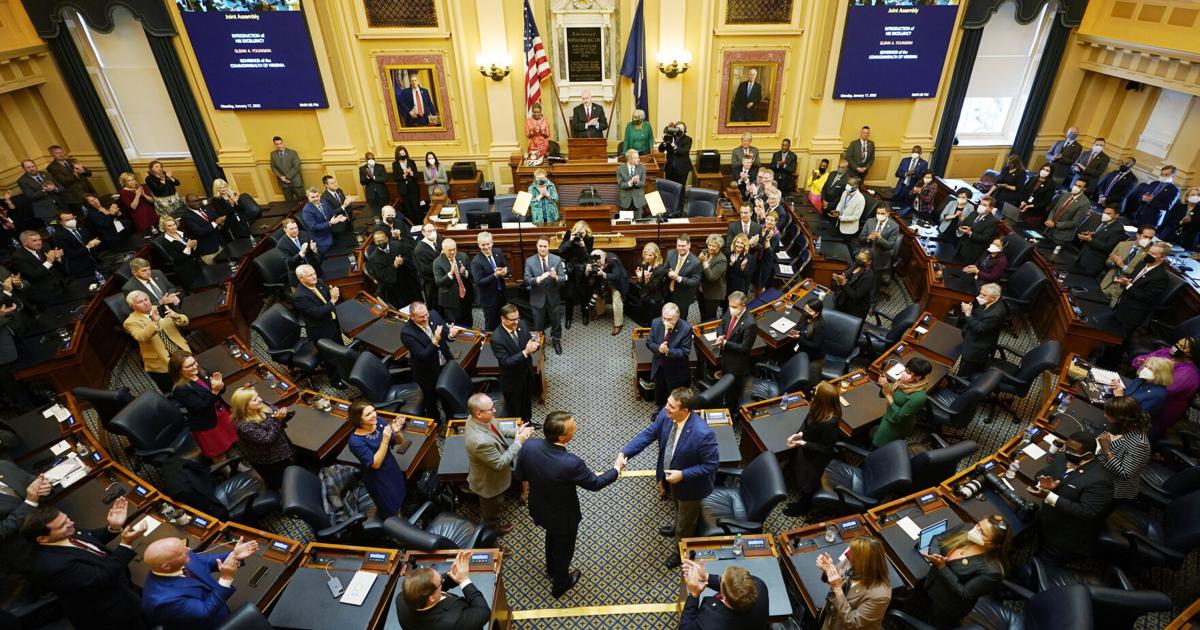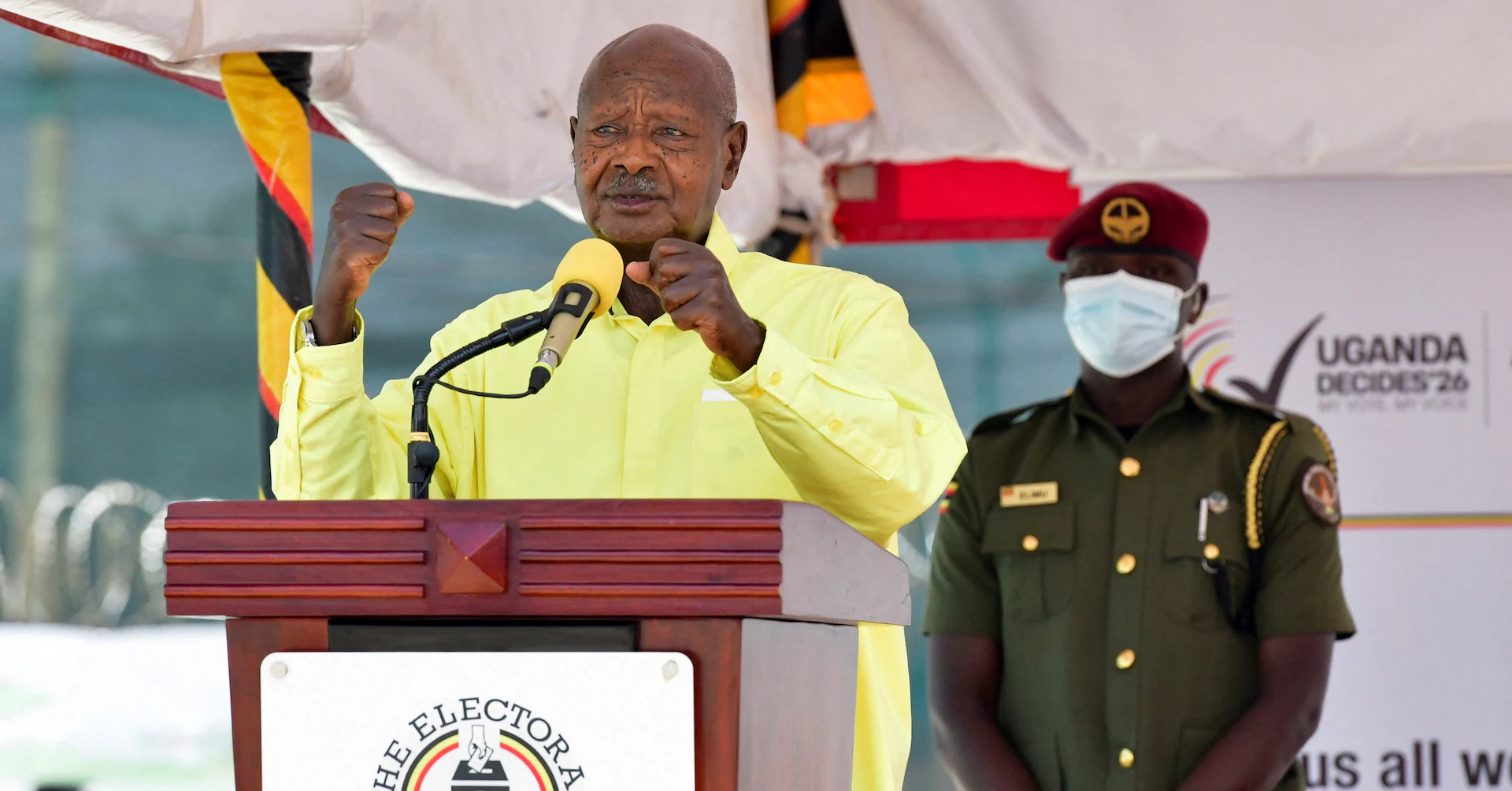
Running for office, most candidates start off with a shopping list of issues – but sometimes, events intrude.
One, for instance, was news that expiration of a tax credit left out of President Donald Trump’s big tax and budget bill will boost Virginians’ Affordable Care Act insurance bills by an average of 20% next year, said Del. Dan Helmer, D-Fairfax, campaign chair of the House Democratic Caucus.
He made the point while walking with Democrat May Nivar as she went door to door in a leafy western Henrico County neighborhood. Nivar is challenging Del. David Owen, R-Goochland in House District 57, which includes parts of Henrico and Goochland counties.
Across the James River, meanwhile, Del. Mark Earley, R-Chesterfield, said eruptions of bitter invective from across the political spectrum after the assassination of conservative activist Charlie Kirk are leading to different kinds of conversations on voters’ doorsteps.
“It feels like people just want a connection, just want to talk … want to know how do we get past all this hatefulness,” he said.
Earley faces a challenge from Democrat Leslie Mehta in House District 73, in western Chesterfield.
All 100 House seats are up for election in November. During this year’s legislative session Democrats held a 51-49 edge in the chamber.
Helmer said better access to health care has been a Democratic talking point for a while, but now it’s not just about how Trump’s “One Big Beautiful Bill” will lead to cuts for Medicaid, the health care coverage for low-income individuals and people with disabilities.
“People are worrying about how to pay the bills,” he said.
One that keeps coming up, said Nivar, is affordable child care, as work-at-home regimens from the pandemic end and people return to their offices and work sites. In the suburban district where she’s seeking to unseat Owen, many voters work for the state or are retired state employees, so she hears a lot about pay, benefits and retirement income.
“I usually say who I am, that I’m running to represent this district, a mom, with daughters, and schools and reproductive health are issues,” she said.
“I’ll say I want to fight for better teacher pay. Sometimes, it seems everyone I talk to is a teacher, or knows a teacher or was a teacher,” she said.
Tapping into worries about health care slots in well with campaign themes Democrats have been hitting hard in flyers, social media, ads and going door to door.
“We’re talking about how Republicans aren’t standing up to what Trump is doing,” Helmer said.
Republicans’ message
On his side, Del. Scott Wyatt, R-Hanover, chair of the Republican House Caucus Campaign Committee, said: “The basic message is Virginia is going in the right direction…. We’ve returned people’s hard-earned money, made record investments in education and public safety.”
Earley said he feels he and other Republicans have a strong case to make on those issues.
On the doorsteps, though, he said he doesn’t start off pushing them.
“I say who I am, that I’m the delegate and ask what they see as the top issues, ask if there’s anything I can do for them … I try to keep the conversation really open-ended,” Earley said.
“But people bring our issues up,” he said.
In addition, though, “You hear all kinds of things, from the hyper-local, like traffic, to Ukraine,” he said. And, more recently, a sense that divisions between Americans are growing too wide.
Battleground districts
The race between Nivar and Owen in House District 57 and between Earley and Mehta in House District 73, are among the most competitive in the 2025 election.
These days, running for the House in battleground districts means candidates never run alone.
In the contest between Nivar and Owen, the two candidates have already spent more than $900,000 in a campaign that recently entered its most intense phase, with the start of early voting.
Helmer has been in the district, walking with Nivar, twice before. The caucus has given her a $50,000 cash donation, as well as nearly $54,000 worth of polling and salary and benefits for campaign staff. The New Virginia Majority, a group that advocates for such causes as paid family leave and ending cash bail and other pretrial fees that can keep defendants languishing in jail on minor charges that end up being dismissed, has contributed more than $52,000 worth of members’ time stumping for Nivar. On the day Helmer stopped by, she kept finding flyers in voters’ doors that canvassers from the group had left.
Having Helmer come by is a help, too.
“It’s a real morale booster, and I get lots of expert advice,” said Nivar, a first-time candidate.
Door-knocking counts
Wyatt, after leaving a session that same day with Owen and Del. Carrie Coyner, R-Chesterfield, who is seeking election in another battleground, said it was encouraging to see both immediately heading out for door-knocking. (Coyner faces Democrat Lindsey Dougherty in House District 75, made up of part of Chesterfield and Prince George counties and all of the city of Hopewell.)
“David’s on his fifth round,” of door-knocking, Wyatt said.
In his bid for re-election, Owen has received $97,500 worth of printing and mailing services from the Republican Party of Virginia, while former Speaker Todd Gilbert, R-Shenandoah, has given $40,000 and Del. Chris Runion, R-Rockingham, $22,500.
Like Earley and Coyner, in Chesterfield, and Republicans in other districts Democrats have targeted to flip, Owen’s financial backing has lagged Democrats.
But “Money doesn’t win Virginia elections,” Wyatt said.
“If they want to waste their money on TV ads, fine, we’ll be out there knocking doors,” he said. “When you’re in a competitive district, you’ve got to knock on every door. It’s got to be the candidate; a staff person isn’t enough. … You knock doors, give your cell numbers, people know who you are.”
Nivar has spent $140,000 on broadcast ads to Owen’s nearly $21,000, while she spent $52,000 on digital ads to his $7,800. Earley’s spent $776 on broadcast ads and $5,500 on web ads, with just under $14,000 on mailings, while Mehta has spent $69,000 on broadcast ads and $43,000 on mailing.
And all four are still door-knocking hard.
“People really appreciate seeing you,” Nivar said.
“It’s retail politics, I really like it,” said Earley. “With 80,000 (a typical House district population) you maybe won’t talk to everyone, but you’ll talk to lots … face-to-face, real conversation.”



